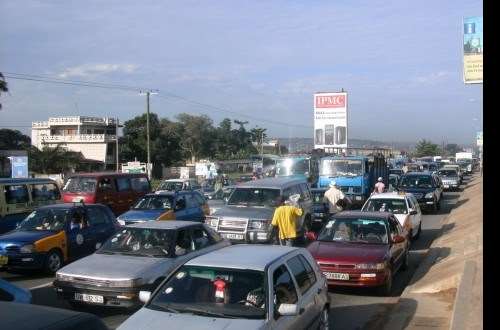Government will soon roll out the “Drive Electric” initiative campaign towards addressing excess power generation challenges in the energy sector, Mr Seth Mahu, Deputy Director, Renewable Energy, Ministry of Energy has said.
“The power demand side has not been able to grow to catch up with the supply side so if the electric drive is encouraged, it will help create that demand," he said.
Mr Mahu, who said this in an interview with the Ghana News Agency in Accra, said the “Drive Electric” was an initiative by the government involving the phasing out of petrol, diesel, and liquefied petroleum gas-powered vehicles.
The electric vehicles will be charged by plugging the vehicles into charging equipment.
"The utilities have some financial challenges with the excess power issue because of the contract they have signed with power producers, popularly known in the industry as ’take or pay. When the power is available whether we need it or not they have to pay.
"That also affects their weighted average cost of energy. This is because we have so much power and we are not making use of it but we have to pay. The cost is spread out for people to pay," the Deputy Director stated.
Mr Mahu said under the “Drive electric” initiative, instead of patrons buying fuel, they would go to charging stations and pay to charge their batteries.
He noted that apart from opening up the power space for the introduction of cleaner energy, the “Drive Electric” initiative would save the country from becoming a carbon dioxide net polluter, a major contributor to climate change.
Mr Mahu said some charging stations were being established and would soon be ready for use.
The Ministry, he noted, had directed the Energy Commission to quicken the development of regulation and standards that would govern the industry, adding that once that was done, companies could now apply for licenses to become private or commercial vendors.
“The good news is that the technology is not new, since it has matured already in some markets.
"We have to get the right template and implement it. After implementing, we can take a step back, study the science and processes behind, and use that to build the human capital that is needed to support the sustainability of the industry and also knowledge export,” he said.
In 2016, energy sector emissions accounted for 15.02 megaton of carbon dioxide (MtCO2e), representing 79 percent of total national emissions of 29.28 MtCO2e (excluding net emissions from Forestry and Land Use), a report on the review of national emission contributions in Ghana’s under the Paris Agreement, indicated.
It revealed that the rising emission trend in the energy sector was driven by the increasing use of liquid fuels in transport and by thermal power generation.
“Light crude oil was the dominant fuel for electricity generation until 2010 when natural gas joined the group of fossil fuels, due primarily to its cost-effectiveness. The transport category accounted for 48 percent, followed by the energy industry, 35 percent and manufacturing and construction 7.2 percent” the report said.
Latest Stories
-
Telecel Group strengthens commitment to Ghana’s socio-economic development with major CSR initiative in digital skills training
2 minutes -
Telecel Ghana honours Epixode with Music for Good Award at 26th TGMAs
8 minutes -
Eddie Nketiah scores twice in Crystal Palace win over Wolves
17 minutes -
The Pelican Hotel in Cantonments unveils a new era of hospitality
21 minutes -
Mpohor and Adum Banso in the Western Region welcome 20 Blue Water Guards
28 minutes -
Softcare celebrates Mother’s Day with donation to Korle-Bu Teaching Hospital
39 minutes -
Monetary Policy Committee of BoG begins meeting today; cedi performance high on the agenda
47 minutes -
itel debuts CITY series with CITY 100 new model: A stylish, durable & DeepSeek AI-powered smartphone for Gen Z
51 minutes -
Star Assurance, Hope for Little Lives deliver transformative outreach
59 minutes -
Tullow Ghana restarts drilling in Jubilee Field, signals renewed investment in energy sector
1 hour -
Fidelity Bank Toastmasters Clubs shine at District 94 Conference in Côte d’Ivoire
1 hour -
Empress Gifty sues Agradaa for defamation; demands GH₵20 million in damages
2 hours -
Elikplim Akurugu sworn in as member of NLA Governing Board
2 hours -
Government reclaims Asenayo Forest Reserve from illegal miners
3 hours -
NIB boss honoured as Peace Ambassador for commitment to unity and justice
3 hours

